
In the past 5 years, especially after selling my first startup, Ive had the pleasure of working with various teams who were mostly in the very early stages of launching their startups. While the journey of each startup is truly unique and can not be compared to one, I couldnt help myself from seeing very interesting patterns.
I want to share with you these patterns, especially the ones that are the main cause of failure for good ideas with brilliant teams.
Insanity is doing the same thing over and over and expecting different results.
Albert Einstein
Team is everything
The team is the #1 reason for failure in most startups and also the #1 reason for success in most successful companies. But why do so many startups fail because of their teams even before theyre launched? Here are the most common patterns:
- The unbalanced teams
The interesting phenomenon in a lot of young startups is that their teams are either all engineers & developers or no developers atall!
For creating a successful startup, technical and marketing are two sides of the same coin. Its so rare (less than 0.01%) that a startup can grow without having great people both in technical & marketing.
So if youre all developers, step out of your comfort zone and bring someone who can sell your vision to your team. If youre all about business, know that outsourcing your product development can become your Achilles heel, especially after testing yourMVP.
2. Different Visions
I saw many great teams fail, just because they had different ideas on what their product should be, what is the long-term goal, what is their exit strategy and what should be the true value of their company in a longrun.
You wont believe how much just an afternoon meeting talking about all of these can help yourstartup.
When you begin a startup, everything is hectic, nothing is clear, and thats fine! Your ideas will change, you may pivot several times and change almost everything. But one thing should not be changed and thats your sharedvision.
The teams with a shared vision will thrive and others will fail. So talk about your long-term goals very early. Talk about what success means in your business and for each member, talk about the true value and goals of your company in a long run. If your visions match, youve got the potential of creating something amazing, if not, remember that time is the most precious resource you have and shouldn’t be wasted on mediocre products.
3. Trust & Compatibility
If you dont trust your team to get you where you want to go, there is no point in wasting anyone’stime.
Your team not only should trust each other, but they should look up to each other. Best teams that Ive seen, each team member believes that the others are experts in their domains and they can constantly learn from eachother.
Everyone likes to work with someone better than them, and the best founders create a balanced team that each team member admires everyone else and is eager to learn from eachother.
This spirit of learning from each other and trust can be broken with bad apples very fast. If you let someone in your team that your team doesnt respect, the spirit of collaboration will die and give birth to resentment. Remember, best people want to work with the best people and you shouldnt accept mediocracy anywhere.
As a rule of thumb, I only hire people that are better than me, so I can not only learn from them, but I can trust them to be leaders of our teams as wegrow.
Another important point is that you always should invest heavily in your team. Youll get exactly what you putin!
Idea validation, gonewrong
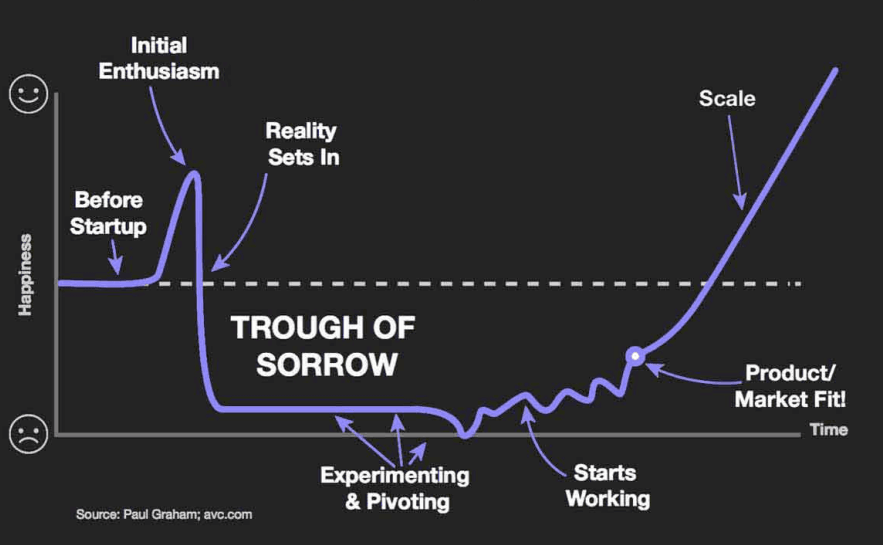
After team, the biggest reason for failure in startups is that their ideas and assumptions are simplywrong.
Most founders can save thousands of dollars and months of their lives by simply googling their ideas, their competitors and researching their target industry.
- Know thy competitors!
You wont believe how many founders Ive met that didnt even know their biggest competitors. Of course, all of them without exception failed within a fewmonths.
When youre working on a new product, the first question that should answer yourself is that what are people using right now instead of my product?.
Most founders only think that other startups & companies can be their competitors. This is false. Everything can be your competitor. A piece of paper can be your competition!
A good practice is to study the history of your product. Early in the product management game, you realize there is nothing that can be called entirely new. Everything (and I mean everything) we created so far, is a transformation of something else that we either created or found in theworld.
Creation or invention is not to create something from 0, it is to create something that is much much better than existing solutions. It should be A LOT better, otherwise, its called an improvement.
Ask yourself what is my product based on? its impossible not to find anything, if you didnt, youre not looking at your idea in the rightway.
2. No competition is too big or toosmall
Most founders either mock and underestimate their competitors and dont take them seriously or theyre way too afraid of them and constantly are looking to distance themselves from them. both are dangerous roads.
There is a reason that your competitors became big and have a large share of the market. If they did everything wrong, how did they get to where theyretoday?
A good practice is to monitor your competitors very closely. Use their mistakes as your leverage and learn from their good practices.
Founders should be experts in the industry that theyre working on. You cant create the next big event management software without having experience and deep knowledge of how the event industry works. You cannot just be good at coding, you need to be the master of your own industry.
In other words, you need to really understand the good, the bad, and the ugly truth of your industry, especially the pricing, players, andtrends.
3. Building Yet AnotherX
There should be a very good reason why you are building your startup, not someone else. There should be a good answer to what if someone else with more money, just copy everything we have and launches a competitor?
If you meet these criteria, youre probably on the rightpath:
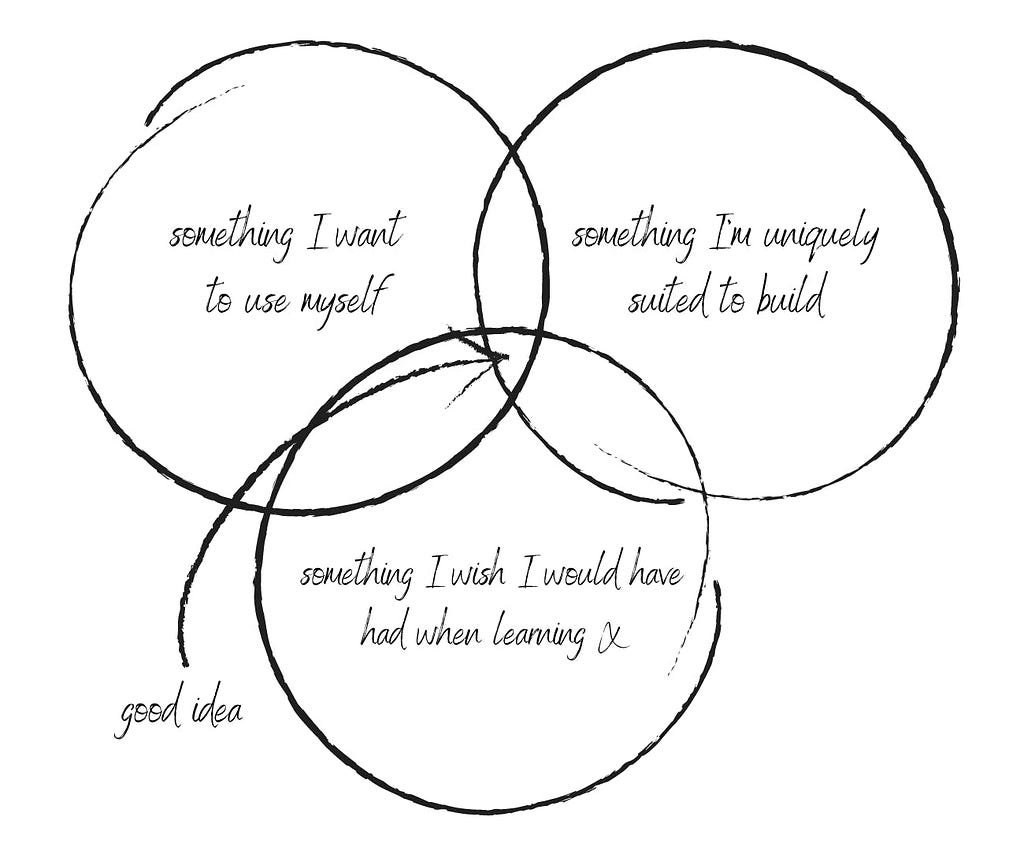
Creating your unique value proposition can be hard but in my experience, most successful startups dont find theirs until after theyre launched!
Feedback of your initial customers, and feedback of people who said no to your products, will shape your unique value proposition.
There is a reason why the co-founder of Slack personally went to the office of every one of their first customers and installed Slack for them or why Matt Mullenweg, founder of Automattic & WordPress, personally installed WordPress for hundreds of their customers when theybegan.
Great companies have secrets: specific reasons for success that other people dontsee.
They wanted to see real, unsolicited feedback from their early adopters. They wanted to see what people love about them and what they didnt. That way, they could invest in the right unique value proposition, the real reason behind why people choose you over your competition.
4. Focus on creating values for your users, notfeatures
A lot of young startups are focused on developing new, exciting features that their competitors dont have for some reason. They think these features will set them apart but more often than not, those same features will cause too much complexity in their products.
Almost always there is a reason why your competitors dont have some features. Its not because it was overlooked, its most likely because either it was developed and people didnt use it, or because there was a conflict with their other features or businessmodels.
Its very important to focus on features that are directly linked with your unique value proposition and ignore other impulses. Many techy founders drive their startups over the cliff when they add too many new features.
A good practice is that always state the benefit and value of every feature you want to create, both internally with your team and for when youre announcing them. By stating their benefits, people are more likely to understand them and give them atry.
By stating their benefits clearly, you can make your features attractive and discover whats not working. If a feature cannot clearly be communicated via its benefits, something iswrong.
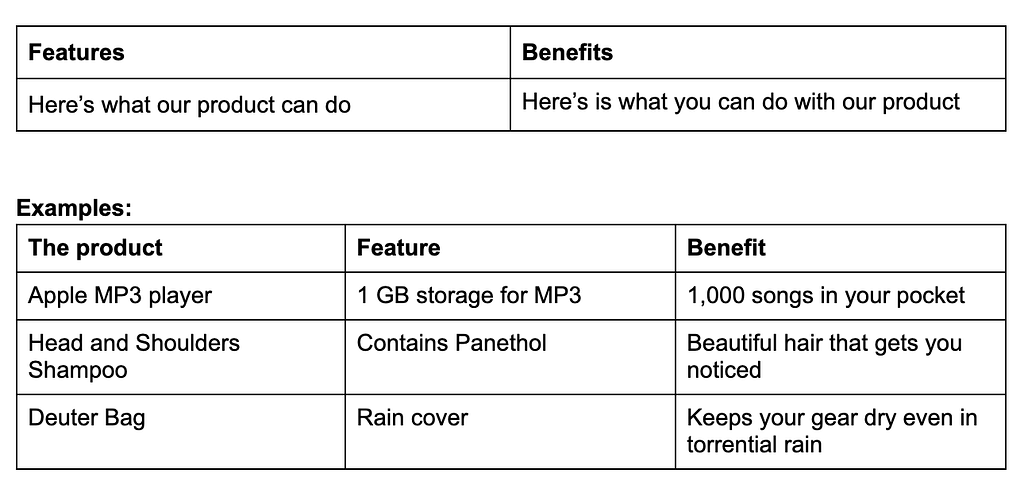
5. Localisation vs Globalisation
This conflict rises especially in startups that have great local market size. Should you focus on providing a great, localized answer and capture the market from international players who are not familiar as you with your market? Or should you create a global startup and compete with globalplayers?
Both of these options can be good options, but you have to choose, you cant do both. Your startup vision should either be local orglobal.
I worked with many great startups in startup ecosystems of Germany, Turkey, Russia, Pakistan & India that with the focus of capturing the local market, theyre now one of the big players in their market. Their focus on answering local needs is their value advantage and their winning card when an international player wants to enter the market. If youre big enough, instead of competing with you, international players tend to acquire you, its much cheaper forthem.
You can start with your local market and then grow to be a global player, but most startups that try this, fail. The reason is their vision, product, and unique value proposition from the start is focused on the local market and thats a slipperyslope.
If you want to create a global player, think globally from the start, dont compromise your product and your vision for your niche market. If you compromise and become tool local while trying to be global, you most probably lose bothworlds.
Startups should beagile!
This should be obvious, but unfortunately, its not for a lot of founders. Ive met many founders that said theyre very agile but without noticing their hypocrisy, spent months on market research or delayed the launch of their MVP formonths.
Again, time is your most precious resource. The only thing you should care about is the results. Most startups fail before the launch of their MVP and thats crazy. They run out of money, frustration and conflicts arise in the team because they dont see the results, and ultimately, minor details cloud over whatmatters.
The outcome matters more than theprocess.
Early days of every startup, everyone is doing everything and there are no clear roles and responsibilities. As you grow, roles become more clear and youll have more and more processes to manage your work. Most successful founders that I know constantly are killing unnecessary processes in their organization instead of adding tothem.
You shouldnt care about using the latest cool tools & technologies, using OKR or SCRUM, or any other methods, there are just means to an end. If something is working, great, if not, change it fast, measure the outcome, if better, keep it, if not,revert.
Startups grow first and then their processes grow, not the other way around. Agility and the ability to give much better customer support when youre small, are any founder’s biggest allies when competing with big names who cant be as agile as you and cant provide deep customer support, simply because they have too many customers.
Many first-time founders waste their time on tasks that seem pretty important, but they dont have any real value. Registering a company, patents, etc. before launching and having a certain amount of customers is a primeexample.
Other examples of wasting time are attending events and pitch competitions before launch and without clear goals. Also creating advisory boards, and spending time and money on professional consultation is pretty common in inexperienced founders.
Going after investment in wrongtimes
Another example of wasting time is going after investors before launching. No respectable VC or accelerator will invest in a startup before the launch of their MVP and have at least a few customers.
Even if a startup is high-tech or hardware-based, and the cost of creating MVP is too much, VCs like to see letters of intent from real potential customers. This is important for VCs not for their monetary value, but its proof that you know your market, can get customers and youre serious about your business.
Someone might say that they saw many startups raise millions before their launch. The truth is that those startups didnt raise any money on their ideas, but because of their founders. Serial entrepreneurs and ex-C-level executives of big enterprises have a proven track record and many VCs are eager to bet that they can replicate their successagain.
This flowchart shows how most VCs evaluate the startups that pitch forthem:
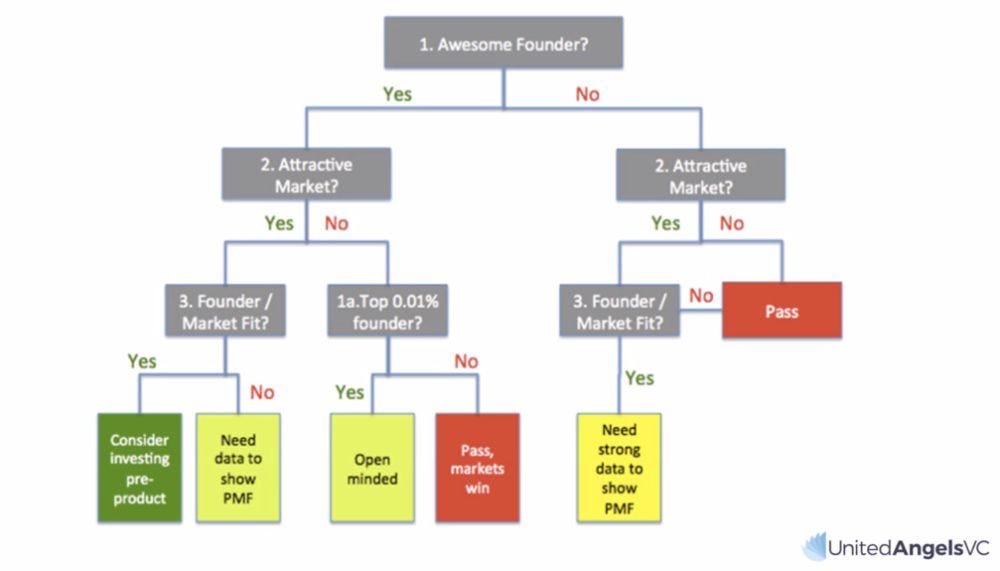
When you have aworking
Another pattern between some first-time founders is theyre afraid their idea gets stolen and sometimes ask VCs & mentors for NDAs! This is a sign of an inexperienced founder with bad judgment and its usually a nail of death for thatstartup.
Ideas are very powerful but theyre worthless without execution. As Derek Sivers wrote in his book Anything youwant:
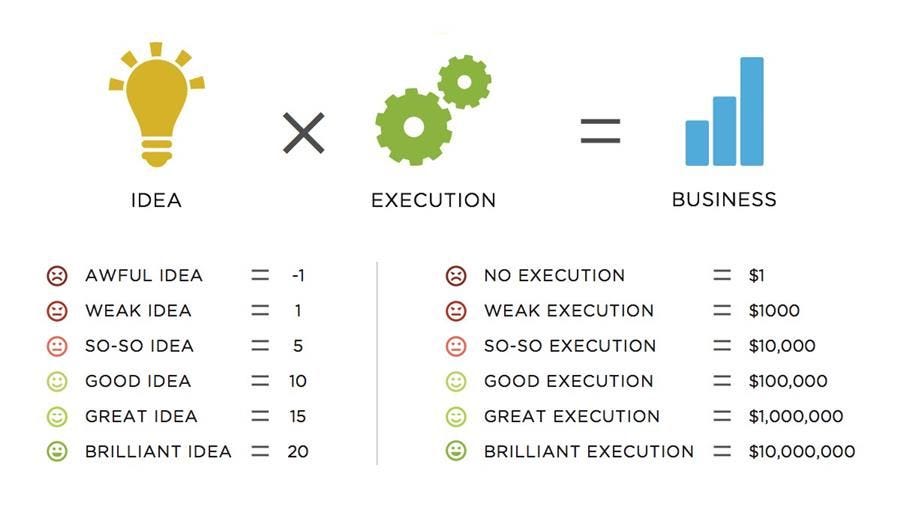
Pivot withoutshame
Almost all successful startups you know pivoted in their journey multiple times and their ideas today are nothing like their ideas when theystarted.
One of the reasons that agility is so important is that it enables you to pivot fast to reach product-market fit. Were not married to our ideas, if the feedback is not good enough, we need to change again and again until our users really love us. They show this love by growing our product with their word of mouth. Pivot until you have a community of fans and you reach organicgrowth.
Pivoting can be very tricky too. If you dont analyze the change in the feedback of your customers and community, you might miss great opportunities or worse than that, pivot off acliff.
Great pivots happen when startups really understand the hidden, underlying need of their users from what they say theywant.
There is a famous quote attributed to Henry Ford: If I had asked people what they wanted, they would have said faster horses. Customers can easily describe a problem theyre having??in this case, wanting to get somewhere faster??but not the best solution. Best pivots create the best solution and promote the real value, the real benefits to get their users to fall in love withthem.
Oh, I think its better to keep it short! There are so many more lessons that I learned from amazing founders (and stubborn ones!), Ill share them in the next posts withyou.
Thank you for reading this post, I would love to hear your feedback and your experiences regarding this post. If you want to contact me or ask me any questions, here is my LinkedIn, I would be happy to hear fromyou.
What Ive Learned From Mentoring 100 Startups was originally published in Startup Stash on Medium, where people are continuing the conversation by highlighting and responding to this story.
















